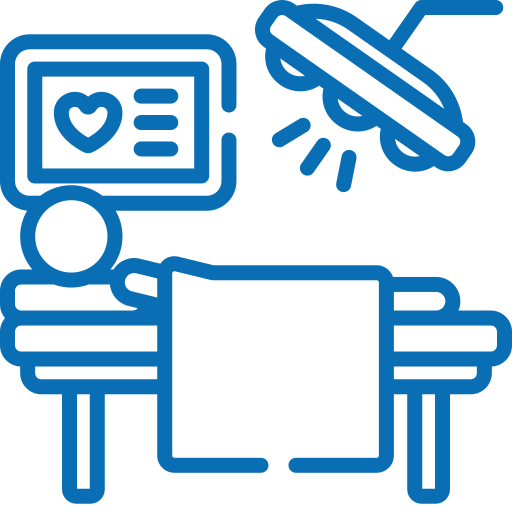Role of Labs in Diagnosis of Everyday Diseases
In common diseases, making an accurate and fast diagnosis is crucial considering today’s fast-moving lifestyle. There, laboratories are an integral component of the healthcare system, as they offer crucial data which assist doctors in figuring out the nature of the symptoms, tracking the course of diseases, and checking the effectiveness of the treatment.
In recent years, the influence of the diagnostic laboratory in the USA has increased significantly as healthcare providers concentrate on evidence-based medicine. At Absolute Urgent Care, we understand how crucial it is to carry out laboratory tests in the care of patients; hence our goal is to ensure that such services are affordable and convenient for patients.
Combination of Clinical Examination and Lab Tests Are the New Norm
Laboratory testing is considered to be a pillar of modern medicine as, in most cases, it provides information that cannot be achieved through a physical examination. Laboratory test results, whether for simple annual check-ups or for extensive ailment work-up, assist healthcare professionals in making sound clinical decisions. Laboratory testing presents an array of benefits that enhance its usefulness. They include the following:
- Correct Problem Identification: Lab tests provide accurate results that assist in treatment by targeting the specific cause of the illness.
- Identification of Diseases in the Early Stages: Regular tests provide a chance to identify diabetes, high cholesterol, or any infection before visible symptoms arise.
- Treatment Monitoring: For the purpose of treatment monitoring: Ongoing lab tests allow both the physician and the patient to assess the efficacy of the prescribed treatment(s) and make modifications/optimisation if necessary.
- Preventative Care: Tests help identify factors that put an individual at risk of various diseases, and such observations assist in undertaking timely measures to prevent advanced stages.
Lab Tests Assist in Diagnosing Common Diseases
Many health-related complaints that people present on a daily basis are not properly diagnosed in any doctor’s office without necessary lab investigations. Below are a few common such ailments and certain types of lab investigations that help in their diagnosis:
-
Respiratory Infections
Respiratory infections – flu, bronchitis, and COVID-19 are consistently confirmed by laboratory tests. To determine the need for antiviral or antibacterial treatment, swab tests and blood tests confirm the presence of the virus or bacterium in the patient’s body.
-
Urinary Tract Infections (UTIs)
UTIs are one of the more common forms of cystitis, particularly for women around the globe. A simple urine culture can detect the presence of bacteria, pus cells, or other evidence of an infection.
-
Diabetes
Diabetes diagnosis is also more or less dependent on laboratory tests which include fasting blood sugar, HbA1c, and glucose tolerance tests. All these tests are important in evaluating the control of blood sugar levels.
High Cholesterol and Cardiovascular Risk
Enlargement of a lipid particle’s core is one of a number of changes that occur when a person develops cardiovascular risk due to high cholesterol levels. A visibly large lipid particle is a strong indicator that there was a risk for developing heart disease or a stroke. Starting to read the signs can help lessen the risks of serious complications with medication or lifestyle changes.
-
Thyroid Disorders
Disorders like hyperthyroidism or hypothyroidism are managed based on blood tests computed at various T cell levels: TSH, T3, T4. The tests when interpreted and managed appropriately are helpful in getting the cases correct for the lab score results to be accurate.
-
Anaemia
Anaemia is understood to be a disease that can be diagnosed through a complete blood count (CBC) test. It defines the number of red blood cells in the bloodstream, the amount of haemoglobin present, and how concentrated those red blood cells are. The tests help understand underlying causes such as fatigue or weakness.
-
Sexually Transmitted Infections (STIs)
Sexually transmitted infections such as chlamydia, gonorrhoea, HIV infections can all be diagnosed by performing specific blood or urine tests. No matter the kind of STI, it is important to get regular lab tests as it can help understand the problem, apply the right treatments, and stop its transmission.
-
Liver and Kidney Disorders
Liver and kidney health along with normal functioning can be examined with a comprehensive metabolic panel (CMP) blood test. Hepatitis, cirrhosis, and chronic kidney disease are a few problems that the tests are known to help identify.
-
How Lab Tests Are Done
Testing in the lab is an easy process however it is dependent on the type of test that was done. Below is a brief outline regarding how most tests are performed:
- Patient Sample(s):
Blood, urine, saliva or swabs are common specimen types. This collection procedure is relatively quick and less uncomfortable.
-
The sample analysis:
After a sample is collected, a certified physician sends it to a lab. There, a technician employs sophisticated exercise equipment to conduct the sample analysis.
-
Provision of Results:
After certain results are generated, they are provided to the healthcare provider, who explains the results based on signs and the medical history of the patient.
Here at Absolute Urgent Care, our lab services go above and beyond to ensure accurate results are provided within the shortest time possible so you can address any worrying concerns.
Overcoming the Limitations of Conventional Point Of Care Testing Kit with Lab Innovations
The traditional method of conducting lab tests and procedures is very resource intensive in terms of time, people and other physical resources. The studies also indicated an increased level of patient satisfaction after multiple test cases were carried out by employing point of care technologies. Some of the technologies that were used are:
-
Point of Care Testing or POCT
POCT is often used for glucose level monitoring and rapid strep tests which can be done at the patient’s location along with a testing kit, providing results in a short span of time.
-
Molecular Tests
With the advent of more efficient molecular testing tools like the PCR, diagnosing many infectious diseases such as COVID-19 and recording certain gene modifications becomes much more feasible.
-
Integration of Telemedicine
Currently, many organisations offer home sample collection kits, thereby ensuring that patients can collect samples remotely without visiting a lab or a clinic. Results are shared online, which makes the process much more efficient.
-
Artificial Intelligence (AI)
AI is being applied to the interpretation of lab results which human beings are likely to forget or misinterpret, thus minimising the chances of errors.
Why Should You Get Lab Services from Absolute Urgent Care?
Absolute Urgent Care is focused on delivering superior laboratory testing services that are designed to satisfy the expectations of our community. This is why patients have faith in us:
Variety of Tests & Procedures
For all your tests and diagnostics we are based in one location so you don’t have to struggle to find other places that offer similar services.
Quick & Reliable Results
We have advanced testing tools that provide results immediately, which helps in expediting treatment.
-
Easily Accessible Locations
Absolute Urgent Care has numerous locations that are easily accessible to enable patients to obtain the tests they need.
-
Approachable Staff
We have professionally trained staff who can guarantee that every patient will have a positive testing experience.
Preparing for a Lab Test: You Must Be Aware of Preparing yourself for a lab test can mean adhering to fasting or restricting the medication you’re taking or ensuring you drink enough water before a test involving the drawing of blood. Follow Fasting Instructions: Either of these could be crucial, as a test might require you not to eat or drink anything for a duration. Such procedures are common when blood parameters like cholesterol, sugar or other lipids are being checked.
Ensure you do not eat anything until directed by your physician regarding food prior to the test. Preventative Medications: All medications and supplements that you are taking should be disclosed to your clinician as they can also impact the test results. Hydration Hydration is good, and good hydration is better.
This might not seem important post-procedure, but test requisitions involving taking a blood sample tend to become trouble-free as one consumes a healthy amount of water beforehand. Arrive Early Not completely relevant, but also vital. Paperwork before tests takes time. Taking a little extra time doesn’t hurt.
The Future of Lab Testing
The Future of Lab Testing The field of laboratory diagnostics is always advancing and developing. Over time, medicine focused on treating individuals with unique genetic combinations will become the norm, along with further enhanced integration of lab tests with medicine. Additionally, the possible implementation of biomarkers for early disease detection should be achieved soon, along with clinched devices for real-time monitoring of health factors.
Laboratory testing is crucial in fighting disease. From the point where infections are detected or chronic diseases are managed, laboratory services provide reliable information. We understand how laboratory teams assist in this healthcare process at Absolute Urgent Care, and now provide disease management collaboration openly. Always remember that whether it’s screening or more targeted testing, it’s our goal to work hand in hand with you so you don’t feel alone during the tests. A healthier life tends to create happiness, and this is what we aim for.


















